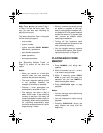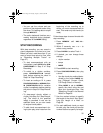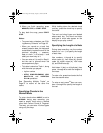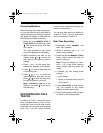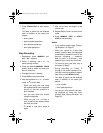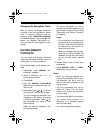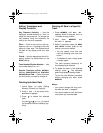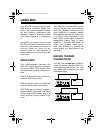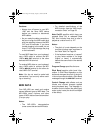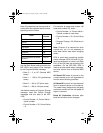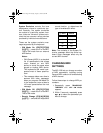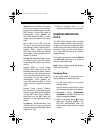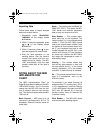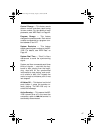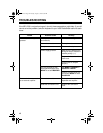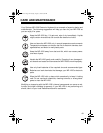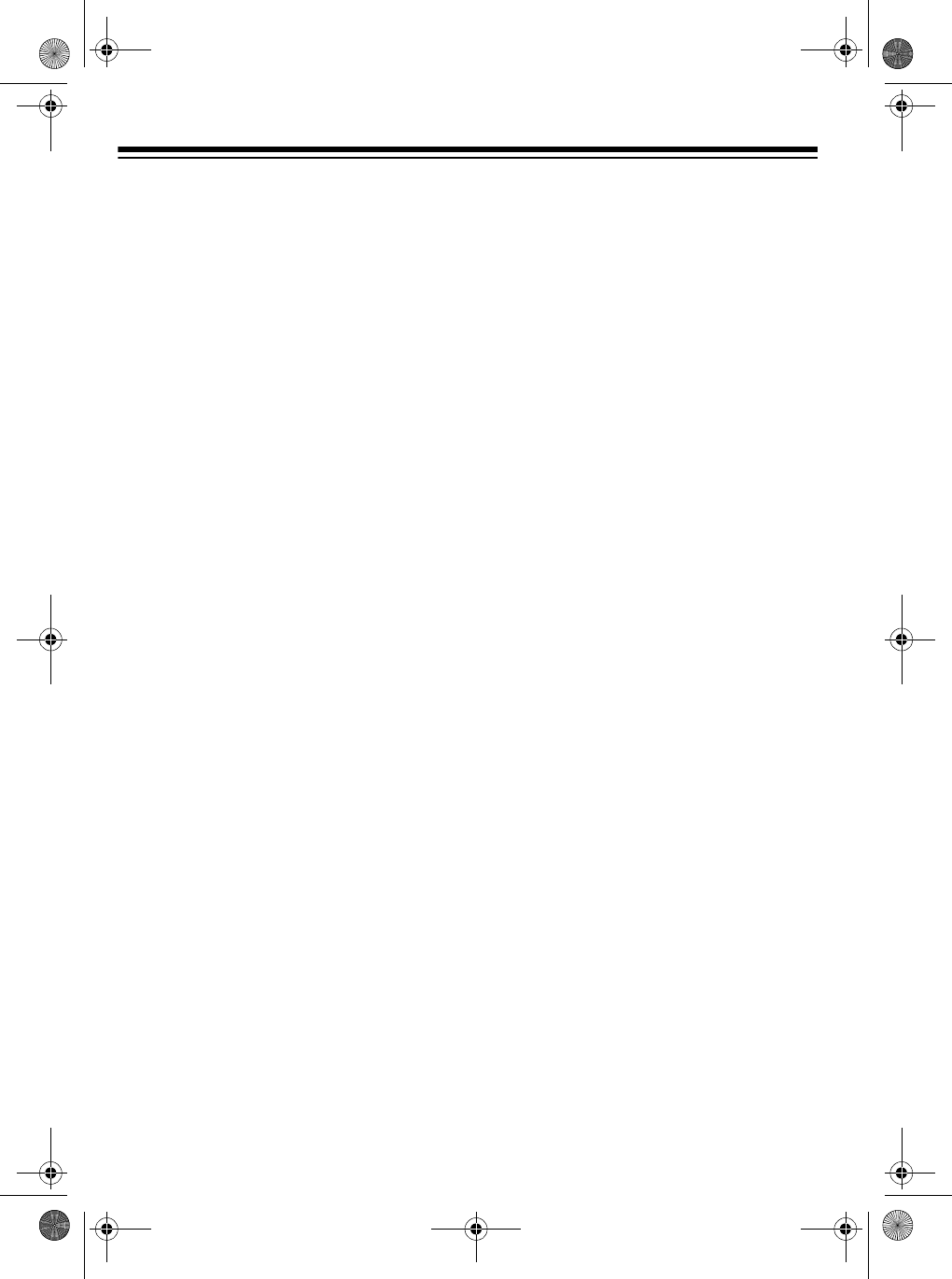
42
Cautions:
• Always turn off power to your MD-
1200 and the other MIDI device
before you connect or disconnect
MIDI cables.
• As you make the cable connections,
be sure to align the MIDI cable pins
with the matching holes on the MIDI
OUT and IN terminals. If you have
trouble plugging in the cable, do not
force it! You might damage the plug
or the instrument.
To send MIDI data from your keyboard,
use a MIDI cable to connect the MD-
1200’s
MIDI OUT
terminal to the other
device’s MIDI IN terminal.
To receive MIDI data on your keyboard,
use a MIDI cable to connect the MD-
1200’s
MIDI IN
terminal to the other de-
vice’s MIDI OUT terminal.
Note:
You do not need to make both
connections if you are only either send-
ing or receiving.
MIDI DATA
Your MD-1200 can send and receive
several different types of MIDI data. The
MD-1200’s tones, rhythms, and other
types of MIDI data are sent automatical-
ly as you play.
Notes:
• The MD-1200’s demonstration
tunes cannot be sent as MIDI data.
• For detailed specifications of the
MIDI function, see the “MIDI Imple-
mentation Chart” on Page 58.
Note On/Off
specifies which keys are
pressed (Note On) or released (Note
Off). Also includes how loud a note is
played as a value from 0 to 127.
Notes:
• The pitch of a note depends on the
tone that is being used, as shown in
the “Note Table” on Page 52.
• If the keyboard receives a “request”
to play notes outside of its range
(higher or lower), it automatically
selects the same note in the nearest
octave.
Program Change
specifies the tone.
Pitch Bend
supplies pitch bend infor-
mation. A Pitch Bend operation on this
keyboard changes the pitch of the built-
in sound source and sends a Pitch Bend
message through the
MIDI OUT
terminal.
Control Change
adds effects such as
vibrato and volume changes applied
during keyboard play. The message in-
cludes a control number (the effect type)
and a control value (the on/off and depth
of the effect).
42-4041.fm Page 42 Tuesday, August 3, 1999 6:56 AM



